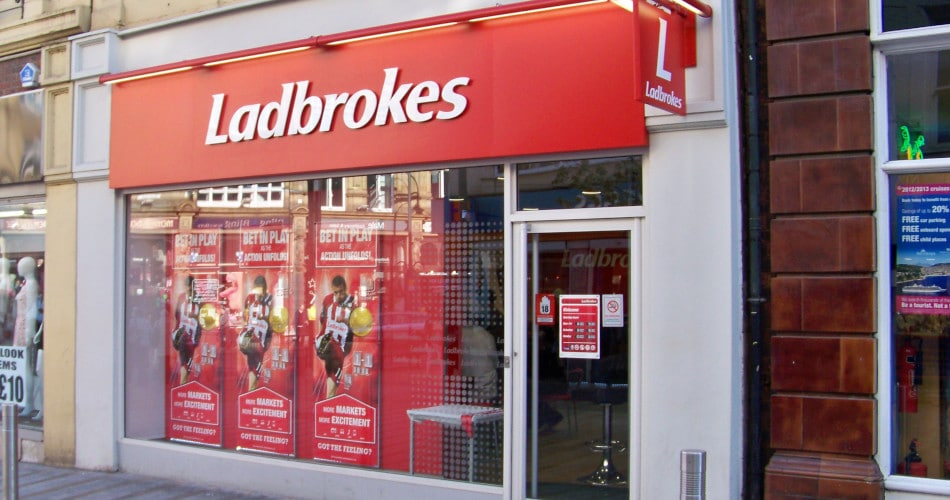
Gambling company GVC Holdings has warned that it could lose around £43 million due to current and upcoming lockdowns throughout the UK and Europe.
The company, which owns Ladbrokes, Coral, Foxy Bingo, and Bwin, is expected to close hundreds of betting shops across the United Kingdom and throughout Europe due to COVID-19 lockdowns.
According to the Evening Standard, it will lose around £27 million in the UK and around £10 million, totalling at £37 million. If all lockdown closures last for a month, GVC predicts that its total loss will be approximately £43 million.
According to iGaming Business, a GVC spokesperson issued a statement on the upcoming restrictions saying: “The well-being, safety and security of our colleagues and customers is of paramount importance to us. We are following government advice to each area of our operations and are enacting contingency plans to minimise the impact on the business.”
GVC’s announcement comes after Prime Minister Boris Johnson announced on Saturday (October 31st) a month-long lockdown from Thursday 5th to December 2nd. Under the rules, all non-essential businesses will be required to close, including bars, restaurants, betting shops, and casino venues.
As part of the new pandemic restrictions, all 5,681 betting shops across England will be required to close. However, many betting shops and casino venues in England have already closed, like those in Manchester and Liverpool, after the UK Government imposed tier-three restrictions in the regions.
Unlike the first lockdown, horse racing will be allowed to continue but only behind closed doors, and it’s likely that the November Cheltenham event will take place behind closed doors, as well as the three Premier League football matches, and plenty of other events.
Casino venues and betting shops in Wales are already closed under the country’s ‘firebreak’ lockdown which is set to end on November 9th. In Northern Ireland, betting shops and casino venues remain open.
It’s not known what will happen after December 2nd, but it’s been rumoured that the tier system of COVID-19 restrictions will be applied to regions depending on their level of cases. However, Michael Gove has claimed that the month-long lockdown could be extended past December 2nd – although this hasn’t yet been officially confirmed.
Alongside England, European countries Italy, France, Belgium, and the Czech Republic have all announced lockdowns due to a second wave of Coronavirus.
The news comes after several casino bosses shared an open letter to Scottish First Minister Nicola Sturgeon, warning her that “hundreds of Scots” are at risk of losing their jobs under new COVID-19 restrictions set by the Scottish Government, CasinoBeats reports.
Casinos in Scotland and the rest of the UK have been praised for being Covid secure by implementing perspex screens, effective track-and-trace system, as well as regular and deep cleaning and strict social distancing measures.
Under the new restrictions, however, regions placed on Level 2 must shut all casino venues. There are 11 casinos in Scotland which employ around 700 people in total, all of which now face potential job losses.
In the open letter, casinos bonuses have asked Sturgeon to remove casinos from Level 2 restrictions, stating that the affected casino venues pay around £30 million in tax payments a year.
John O’Reilly, the boss of Rank Group which owns Grosvenor Casinos, said the industry is asking for parity with pubs which can remain open if they serve meals, and O’Reilly has suggested a compromise to stop selling alcohol at casino venues to remain open.
“In our five Scottish casinos, we have ID scanning technology which captures the data of every customer entering our venues,” O’Reilly said in the letter. “Thus far, across the UK, we have had over 400,000 customer visits from over 135,000 customers, and we are aware of just two cases of customers having been positively tested for the coronavirus, neither of which have been in Scotland.
“Our venues are indisputably Covid-secure. Why must they therefore close in Level 2 whilst other hospitality industries can remain open? I write to you utterly confused as to why our venues must close in Level 2, extremely worried on behalf of thousands of my Rank colleagues who now face enormous job insecurity in Scotland which need not be the case, and in the hope that even at this late stage, you will follow the evidence.
“If we are treated in line with other areas of hospitality, we will be able to protect jobs, safely give Scottish customers something to be cheerful about, and play a full part in Scotland’s economic recovery.”
Michael Dugher, the Chief Executive of the Betting and Gaming Council (BGC), added: “Casinos have been operating safely since August. The simple fact is there is no evidence that they contribute to the spread of Covid, so closing them makes no sense – especially when other parts of the hospitality sector in Scotland are being allowed to stay open.
“I would urge the Scottish Government to think again, allow casinos to operate safely and make a vital contribution to the UK’s economic recovery.”
The BGC has extensively campaigned for the reopening of casinos amid lockdowns and COVID-19 restrictions, and it’s also campaigned to avoid their closure. although most pleas and dialogues have gone unanswered.
Meanwhile, the BGC has also been working to drive up standards within the gambling industry by making changes to the code of conduct regarding the design and play of online slots. One of these new changes was the requirement of a minimum speed per spin.
The BGC’s restrictions also include the removal of two main features within video slots; the multi-slot play feature which allowed users to play more than one game at a time, and the turbo speed mode which sped up the gameplay of slots.
Addition changes implemented by the BGC include more mandatory checks on customer activity to spot signs of gambling addiction. The BGC made these changes as part of a move to clamp down on safer gambling and prevent players from developing gambling-related problems.